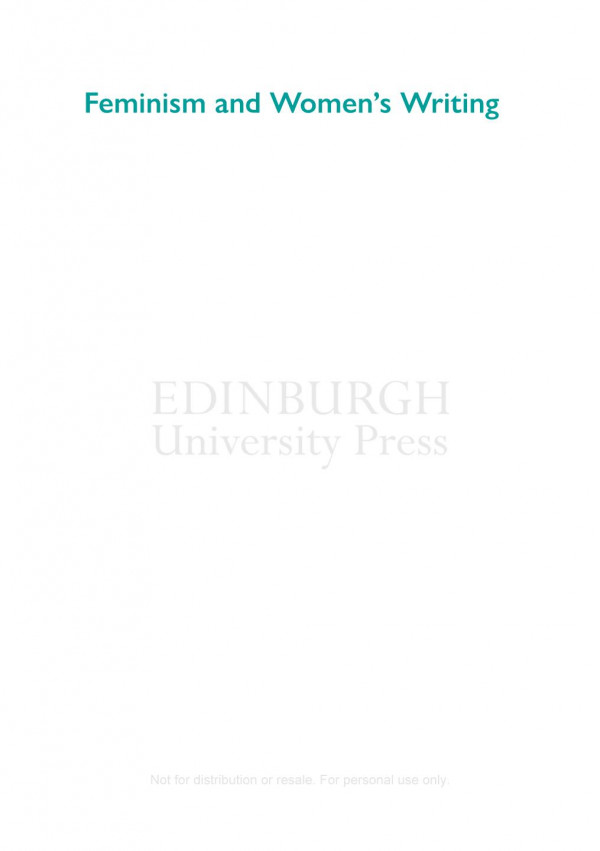

Most ebook files are in PDF format, so you can easily read them using various software such as Foxit Reader or directly on the Google Chrome browser.
Some ebook files are released by publishers in other formats such as .awz, .mobi, .epub, .fb2, etc. You may need to install specific software to read these formats on mobile/PC, such as Calibre.
Please read the tutorial at this link: https://ebookbell.com/faq
We offer FREE conversion to the popular formats you request; however, this may take some time. Therefore, right after payment, please email us, and we will try to provide the service as quickly as possible.
For some exceptional file formats or broken links (if any), please refrain from opening any disputes. Instead, email us first, and we will try to assist within a maximum of 6 hours.
EbookBell Team

4.8
34 reviewsThis book introduces you clearly and succinctly to the ways in which feminist ideas have transformed the form and content of women’s fiction and non-fiction writing. The Introduction sets out the critical background and the main feminist critical approaches to literature. This is followed by 5 chapters which outline feminist engagements with the canon, gender, the body, sexual difference and ethnicity to demonstrate the ways in which feminist ideas have affected the content of women’s literature. The next 5 chapters examine types of fiction writing: romance, crime, science fiction, life-writing and historical fiction, to show the effect of feminist ideas on the form of women’s literature.
The text also provides a wide range of illuminating case studies which include: Virago Modern Classics, The Women Prize for Fiction, Charlotte Perkins Gilman’s Herland, Angela Carter’s The Passion of New Eve, Margaret Atwood’s The Edible Woman, Lucy Ellmann’s Sweet Desserts, Barbie dolls, French feminism and sexuality, trans identities, feminist publishing and ethnicity, black and minority ethnic women’s writing, Zadie Smith’s novels, Toni Morrison’s Beloved, Eimear McBride’s A Girl is a Half Formed Thing, Val McDermid and lesbian crime writing, Ruth Rendell and the invention of the ‘whydunit’, Margaret Atwood’s Maddaddam sci fi trilogy, Jeanette Winterson’s Oranges Are Not The Only Fruit and The Passion, Pat Barker’s Regeneration trilogy and Hilary Mantel’s Wolf Hall and Bring Up The Bodies. Each chapter ends with a list of primary texts and recommended further reading.